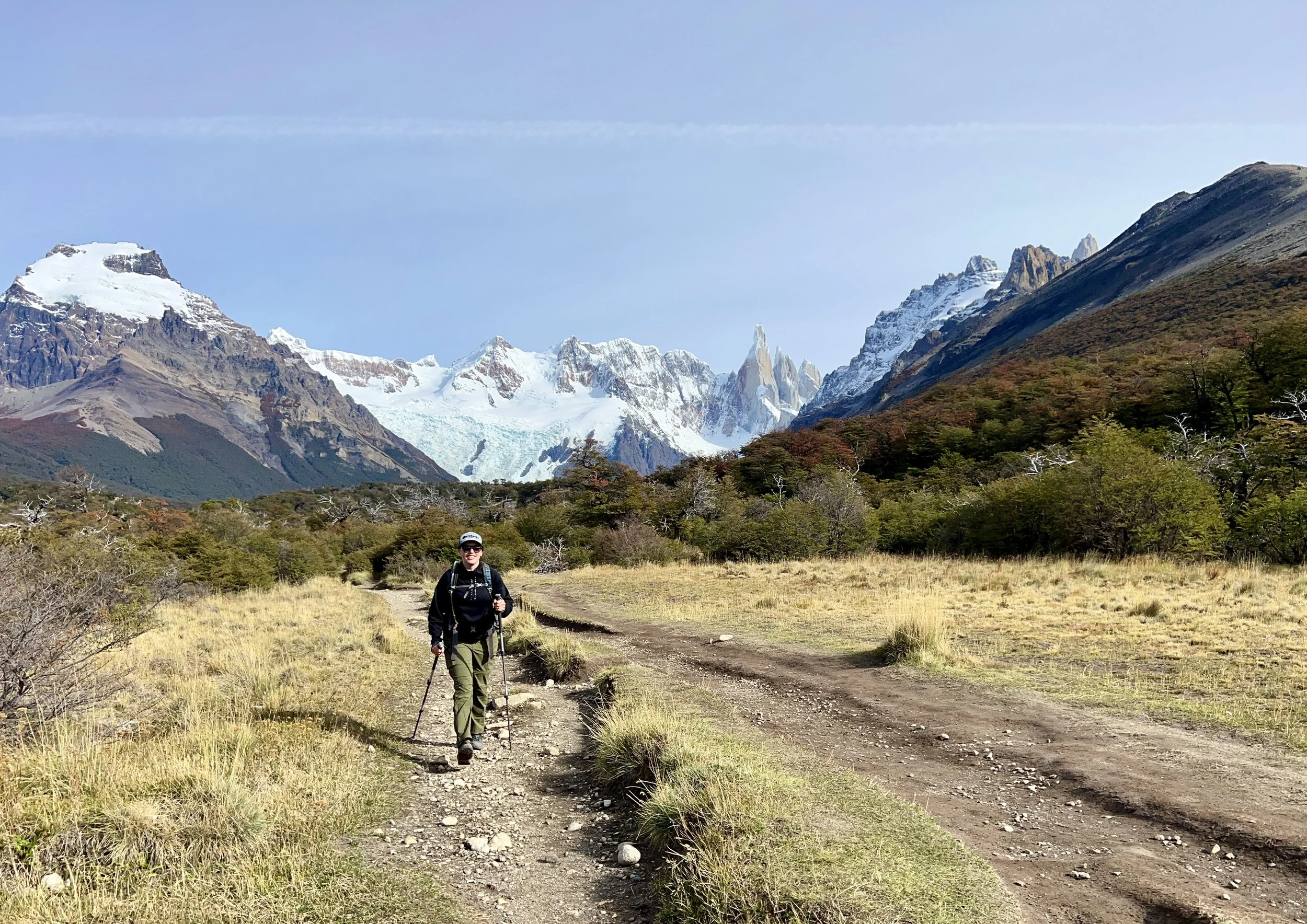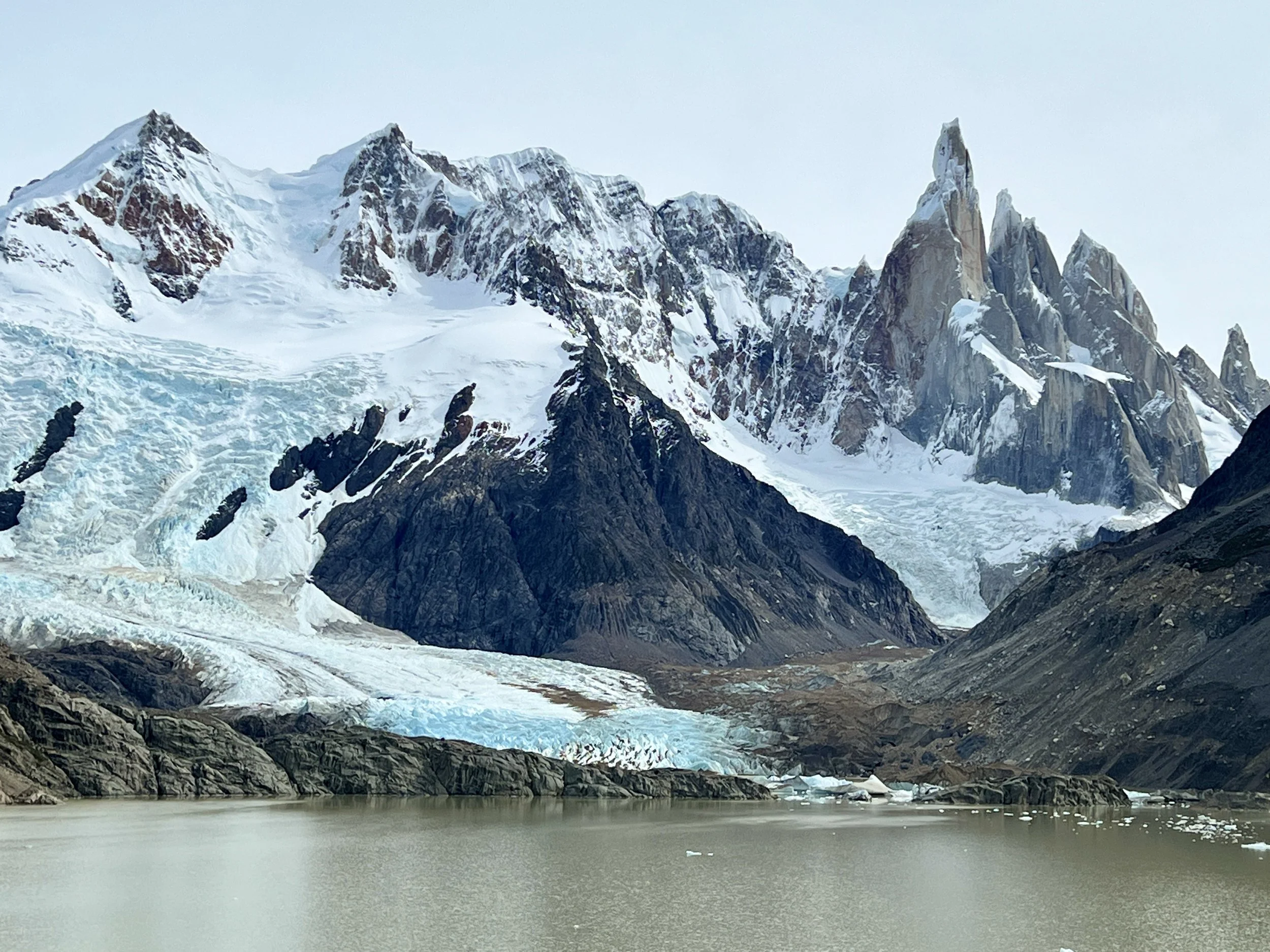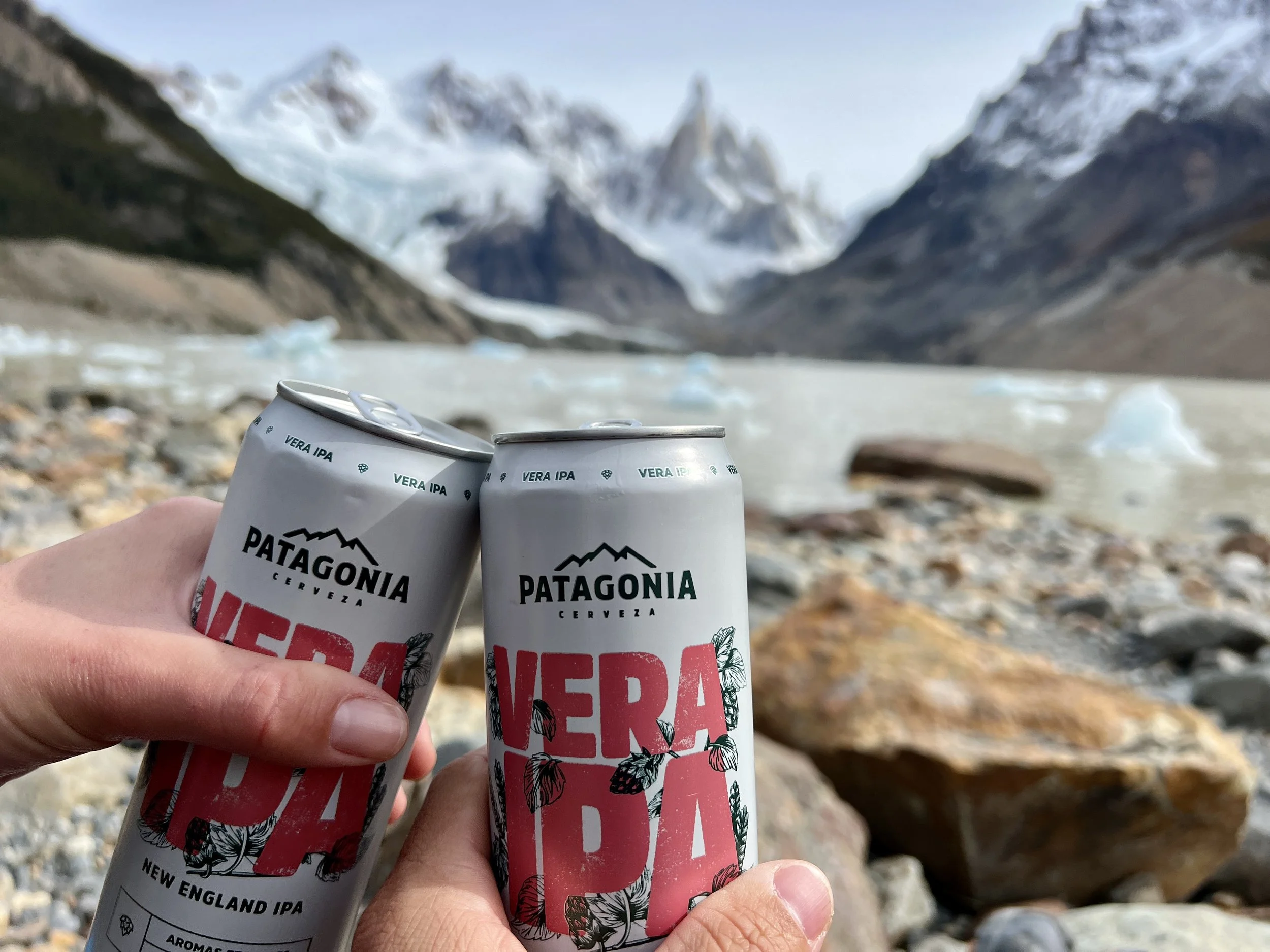Hiking for the Hell of It
Laguna Torre Hike, El Chalten, Argentina
The science is in, and exercising outside boosts your mental and emotional health more dramatically than almost anything else you can do in your life. As author Steven Kotler wrote, "a bevy of studies have showed that time in nature raises serotonin levels and lowers cortisol levels, which is why a twenty-minute walk in the woods out-performs most SSRI drugs as a treatment for anxiety and depression."
While the reasons for going outside are myriad, too often when I talk to people about being active, they're way too concerned with what being active will do for them, as if going on a hike is simply a tool that they can use to get something else. Implicit in the question, "What are the benefits of going on a hike in nature?" is the belief that the hike must serve some greater good, some higher objective in their life.
However, there's a critical problem with this underlying belief that whatever we do must be done in order to achieve something else. If we're always undertaking tasks or projects, or adding to-do items to our daily schedules in an effort to achieve some other goal... well, where does it end? What is the end goal that we're struggling and working toward, the ultimate good that we're trying to achieve?
If we don't figure out what things in our lives are good in and of themselves, for no other reason than because we value them, we'll be hamsters on a wheel, constantly spinning and spinning and never able to step off.
Hiking as an End in Itself
Laguna Torre Hike, Argentina
The idea of doing things for their own sake is a central point in Oliver Burkeman's book Four Thousand Weeks: Time Management for Mere Mortals. While I was already jiving with his line of reasoning, I perked up even more when he used hiking as a key example for doing an activity simply for that activity's sake—not for the sake of accomplishing everything else.
In the book, he tells the story of going on a walk in the rain in the Yorkshire Dales. He writes,
“Of course, this is just a country walk, perhaps the most mundane of leisure activities—and yet, as a way of spending one's time, it does have one or two features worth noting. For one thing, unlike almost everything else I do with my life, it's not relevant to ask whether I'm any good at it: all I'm doing is walking, a skill at which I haven't appreciably improved since around the age of four. Moreover, a country walk doesn't have a purpose, in the sense of an outcome you're trying to achieve or somewhere you're trying to get. (Even a walk to a supermarket has a goal—getting to the supermarket—whereas on a hike, you either follow a loop or reach a given point before turning back, so the most efficient way to reach the endpoint would be never to leave in the first place.)”
(Emphasis mine.)
He goes on to explain that hiking is a key example of an "atelic activity," "meaning that its value isn't derived. . .from an ultimate aim." The value of a hike isn't derived from reaching the end of the hike. Rather, you get value out of simply going on a hike for a hike's sake.
As philosopher Kieran Setiya wrote, "There is no more to going for a walk than what you are doing right now." The walking is, itself, the point.
Cerro Torre, Argentina
Memento Mori, and the Absurdity of Living for the Future
The crux of Burkeman's reasoning is that, as mortal beings, we eventually need to find a thing in our lives that we enjoy—an activity that we do simply for its own sake. If everything you do in your life is only done in order to attain some larger goal, then where does it stop? When have you finally achieved your ultimate goal?
"Mortality makes it impossible to ignore the absurdity of living solely for the future," he writes. "Where's the logic in constantly postponing fulfillment until some later point in time when soon enough you won't have any 'later' left?"
Too often we get stuck on this constantly-spinning hamster wheel, where we need to get the grades to get the degree to get the job to make the money to buy the things… and all for what? We need to know what we’re working toward. We need to know what we actually want in life. We need to know when enough is enough.
Sitting on the Shores of Laguna Torre, Argentina
To connect more closely with this idea, it's critical to practice memento mori so that you become more comfortable with the idea of a finite, limited life. And as you become more comfortable with that idea, you'll realize that there's no time to wait around to make your life worth living. Instead, you need to begin creating your ideal life today, instead of waiting for some abstract time in the future when all of your problems and challenges will magically be resolved.
And as it turns out, hiking for the hell of it might be the secret sauce that makes living right here and right NOW not only possible, but incredibly valuable and rewarding.
Where are you going hiking today?




